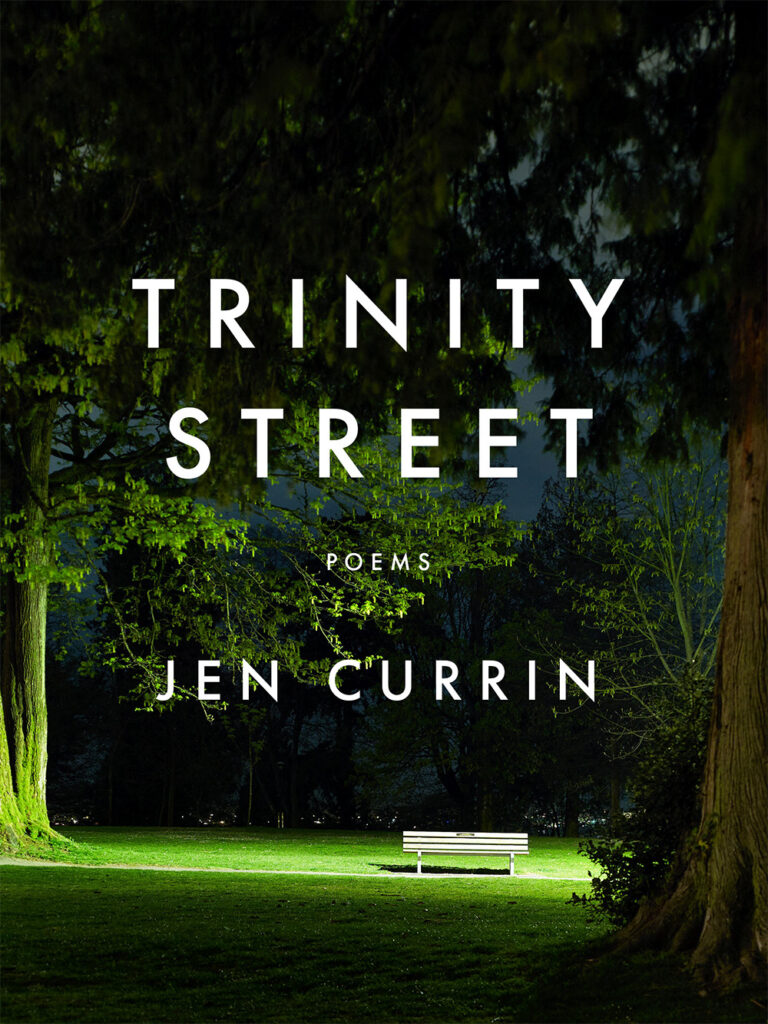Come Together
This historical moment is overwhelming—
you want other people
to be more quiet more often.
On the train, noise
from everyone’s phone. Crickets
in cities are only a sad metaphor
for not getting the expected
response from an audience.
Marble floors in a bank
crack but the revolving doors
keep expelling the same face.
It’s not our father or for that matter
our mother. Recording the hottest
summer on record again as some late ‘60s
tune plays from a loft—
we hear it down on the street
and it seems more relevant
now than it did then.
But that’s just perspective, I guess,
like the realization that we wasted
autumn in stupid posturing
and positioning and now winter
closes everyone’s windows
and the songs are sealed up inside.

Heartsick, reverent, irreverent, and quietly political, Trinity Street is the much-anticipated fifth collection from poet Jen Currin, winner of the Audre Lorde Award and a Lambda finalist.
While Trinity Street is in fact an actual street in Vancouver, it is also the site of an imaginary garden and imperfect utopia in the title poem of this new collection. Currin’s poems weave together the meditative and the disruptive, the queer and quotidian, and the worlds of the dead and the living. Connections are made through prayer and protest; friendships are forged on a planet challenged by climate crisis, collective grief, and the perils of late capitalism.
These poems vibrate with unexpected shifts and precise, startling imagery, the touchstones of a poet whose work critics have described as “thrilling,” “emotionally evocative,” and “revelatory.”
“I delight in Jen Currin’s poetry, and ‘delight’ is the right word, because this kind of vociferous intelligence coupled with such musical sense of wordplay does give pure pleasure. It is wordplay because it romps and leaps within the form of the poem, the lines buck like animals. Throughout all of their books, and especially in this new one, Currin’s sense of language is sure and wild, wild and sure.” — Kazim Ali
“Jen Currin’s Trinity Street is a love letter to a rapidly gentrifying neighbourhood situated within a poetic registration of wider geopolitical strife: from the Tar Sands to Burnaby Mountain protests where ‘old woods’ may heal ‘old wounds,’ to the City where ‘the building pose as mountains, their glass aching to be ice.’ Set against the moody wetness of the Pacific Northwest through its perambulations from Vancouver to Portland and back again, these poems contemplate the moon, a predatory State in collusion with ‘Princes of Melting Icecaps,’ the often-unseen intimacy between architecture and animals, intergenerational trauma, dying salmon and structural dystopia, and conclude with what must be tantamount in our minds in the present ecological crises: water and healing.” — Mercedes Eng